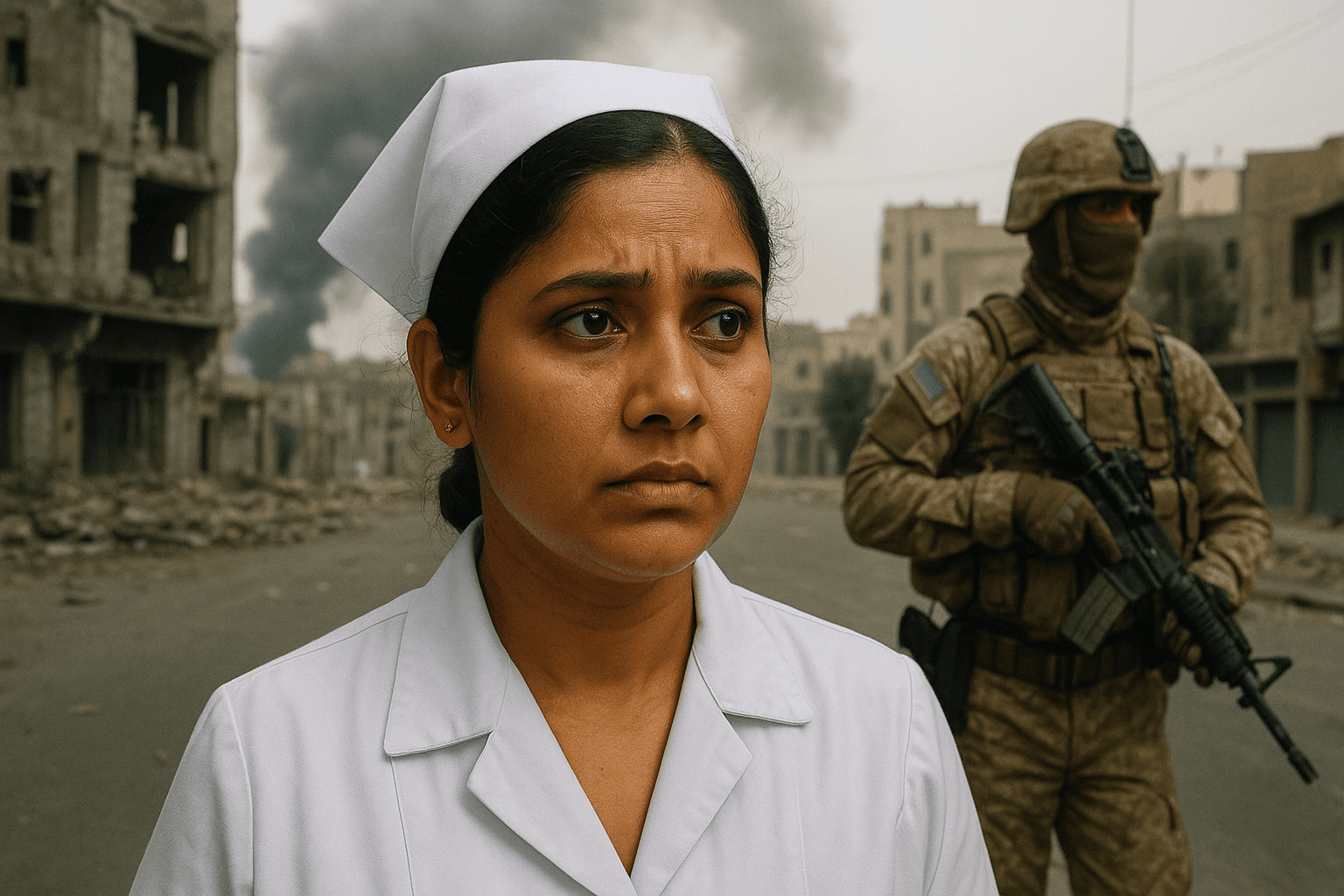
Indian Nurse’s Fate Hangs in the Balance Amid Conflicting Reports from Yemen
With all legal appeals exhausted, her life now hinges on a 'diya' settlement, complicated by diplomatic challenges.
The fate of Nimisha Priya, an Indian nurse convicted of murder and sentenced to death in Yemen, remains a complex and diplomatically sensitive legal matter, with conflicting reports emerging on the status of her conviction.
While a religious leader in India has claimed her death sentence was overturned, Indian government sources have denied these reports, stating that negotiations with the victim's family are ongoing.
Priya, a nurse from Kerala, was sentenced to death in 2020 by a Yemeni court for the 2017 murder of Talal Abdo Mahdi, her former business partner. The sentence was later upheld by the Supreme Judicial Council of Yemen in 2023. Her execution, previously set for mid-July, was postponed amid intense diplomatic and humanitarian efforts.
The legal proceedings are governed by Yemen's interpretation of Sharia law. Under this legal framework, the family of a murder victim has the right to either demand the death penalty for the accused or pardon them in exchange for a financial settlement, known as "diya" or "blood money." This provision has become the central focus of efforts to save Priya's life, as all judicial appeals have been exhausted.
Reports indicate that a "Save Nimisha Priya International Action Council" has been formed, and her family, along with activists, has been attempting to negotiate with Mahdi's family. The victim's family, however, has reportedly been divided on whether to accept the compensation or insist on the execution. A proposal of up to $1 million (approximately ₹8.6 crore) has been offered as blood money, with the Indian diaspora and well-wishers contributing to the fund.
The situation is further complicated by Yemen's ongoing civil war. The capital, Sanaa, where Priya is imprisoned, is controlled by the Houthi rebel administration, which India does not officially recognise. This has significantly restricted the Indian government's direct diplomatic access and legal intervention capabilities. The Ministry of External Affairs (MEA) has stated it is working through its embassy in Riyadh, Saudi Arabia, and with "friendly governments" to facilitate negotiations and provide all possible assistance.
On Monday, the office of Indian Grand Mufti Kanthapuram A.P. Aboobacker Musliyar, who has been involved in mediation efforts, claimed that a high-level meeting in Sanaa had "completely cancelled" Priya's death sentence. This announcement was reportedly confirmed by a Yemeni activist. However, Indian government sources have refuted this claim, telling news agencies that such information is inaccurate and that a consensus has not yet been reached with the victim's family.
Priya's case has drawn attention to the plight of migrant workers in foreign countries and the complexities of navigating different legal systems. According to legal counsel and supporters, Priya's conviction stems from an incident where she attempted to sedate Mahdi to retrieve her passport, which he had allegedly confiscated. The sedative overdose proved fatal. The defense has argued that Priya was subjected to abuse, including forgery of documents to claim she was his wife.
The Indian government has maintained that while it is providing legal and consular assistance, the final outcome rests with the victim's family under Yemeni law. A new court date is expected in August, at which time the Supreme Court of India is scheduled to hear a plea for urgent diplomatic intervention. As negotiations continue, Priya's fate remains uncertain, hinging on the final decision of the victim's family and the success of ongoing diplomatic and humanitarian efforts.
For any enquiries or information, contact info@thelawreporters.com or call us on +971 52 644 3004. Follow The Law Reporters on WhatsApp Channels